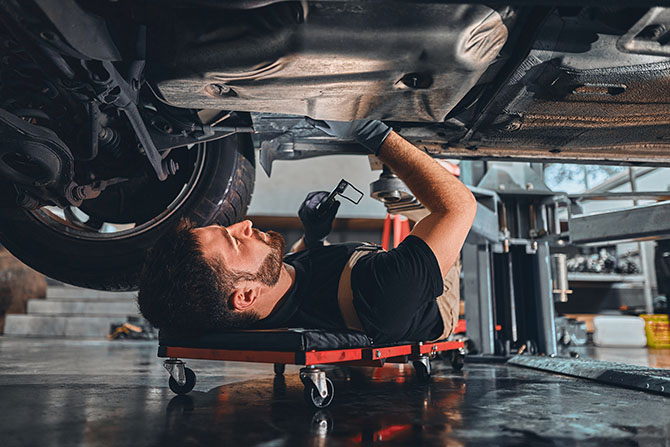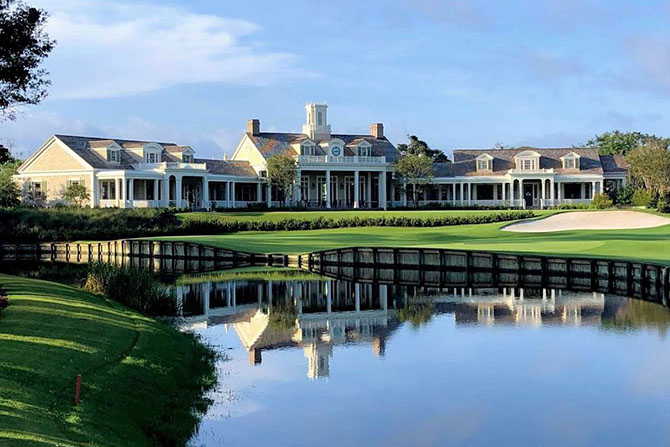It was great to see many of you at the West Virginia Auto Dealer’s Family Convention at Kiawah Island, South Carolina. It was, as always, a wonderful event at a beautiful location. Congratulations to the association and its team on another success.
While we were enjoying the activities and business meetings, I received two common questions — let’s be honest, complaints — related to warranty reimbursement for parts and labor and allocation of motor vehicles. Since both are so important to your day-to-day operations and significantly impact your financial bottom line, I thought it timely to take the opportunity to remind everyone about the protections for these two topics within our West Virginia Franchise Law.
Warranty Labor Rates and Parts Reimbursement
Although the primary changes to labor and parts reimbursement were addressed with our franchise law in 2022, just a quick reminder, in the 2024 changes (effective June 5, 2024), they state that time communicating with the manufacturer is required to be reimbursed and that you can request, in writing, additional time allowance from the manufacturer’s guidelines and it will be presumed reasonable. The key takeaways here are an additional item of reimbursement and that you do not have to accept the manufacturer’s time allowance guideline.
To address the specific question about how warranty reimbursement rate for parts is established, our West Virginia statutory law states that a dealer should submit one hundred sequential non-warranty customer-paid service repair orders that contain warranty-like parts or, alternatively, 90 consecutive days of non-warranty customer-paid service repair orders that contain warranty-like parts covering repairs no more than 180 days before this submission and declaring the average percentage markup.
The statute further states that the retail rate for labor is to be established using the same methodology, and the dealer may use the same repair orders used to establish the parts reimbursement rate or use separate repair orders for parts and labor. Certain types of work can be excluded from the calculation. Those are repairs under a manufacturer’s special event or promotion discounts, parts sold at wholesale, routine maintenance such as bolts, batteries, fluids, filters, belts, nuts, bolts, fasteners and other similar items that do not have an individual part number, tires and vehicles reconditioning.
Once a dealer or a vendor completes this analysis, it is submitted, and the manufacturer has 30 days to respond with specific reasons; otherwise, the markup goes into effect. The statute states that the manufacturer or distributor must approve or rebut the presumption that your request is reasonable by showing that it is either fraudulent or inaccurate, not established in accordance with the franchise law or that the parts markup rate or labor rate is “unreasonable in light of the practices of all other same line-made franchise motor vehicle dealers in an economically similar area of the state offering the same line-make vehicles.”
As stated above, the manufacturer must be specific and provide a full explanation of the reason for the refusal. They must also provide a copy of all calculations used by the manufacturer if the objection is based upon the accuracy of your submission. If the manufacturer disagrees with you, you have the statutory right to file a lawsuit in the circuit court in the county in which you operate no later than 90 days “after dealer’s receipt of the written notice of rebuttal or adjustment by the manufacturer.” While no one likes to file a lawsuit, if an agreement cannot be reached and it is so disagreeable, the legal burden of proof is on the manufacturer, by preponderance of the evidence, to prove that the dealer’s submitted rate for parts and labor was fraudulent and inaccurate, and not established in accordance with the section or was unreasonable in light of practices of other same line dealers.
Please understand that you can make this request annually to the manufacturer, which I encourage all to do.
One important point on exchange parts is that it does not matter if a manufacturer supplies an exchange part at no cost. A dealer is entitled to an amount equal to your normal retail parts markup for that part or component.
Please keep in mind that, as with any other violation of our franchise law, if a dealer prevails, the dealer is entitled to triple damages and attorneys’ fees and costs against the manufacturer.
Allocation
The manufacturer’s responsibilities under allocation are, admittedly, not as detailed as warranty reimbursement for parts and labor. However, this is not to say that you are left without recourse and protection. Within the West Virginia franchise law prohibited practice section, you are protected by specific provisions addressing allocation.
- First, a dealer is not required to order or accept delivery of new motor vehicles that it does not voluntarily order. When push comes to shove, a dealer does not have to accept vehicles it does not order or that do not meet the needs of its market.
- Second, the manufacturer or distributor cannot fail to deliver new motor vehicles within a reasonable time or in reasonable quantities relative to your market area and facilities, unless the failure to do so is caused by things beyond anyone’s control. This refers to matters such as labor strife or our recent COVID-19 pandemic. The statute further provides that a manufacturer or distributor may not penalize a new motor vehicle dealer for an alleged failure to meet sales quotas when the failure is due to the action of the manufacturer or the distributor.
- Third, a manufacturer is required to deliver to a dealer all models manufactured by it, including any model that contains a separate label or badge or indicates an upgraded version of the same model. The manufacturer may not use the vehicle’s method of propulsion as a reason for not delivering motor vehicles to you. This 2024 change was intended to address the manufacturers’ attempt to not deliver electric vehicles to certain dealers.
I will now address a couple of other ancillary provisions. A manufacturer may not use new motor vehicles that are “in transit” against a dealer when determining a dealer’s sales effectiveness or efficiency. Importantly, if there is a question about allocation, the manufacturer must disclose to the dealer the method and manner by which it distributes certain motor vehicles to your market, and it must include the numerical calculation or formula they use in your market to make allocation. A dealer is also entitled to know the total number of new motor vehicles of any given model that the manufacturer or distributor sold in the dealer’s market area. The dealer’s written request for this information must be answered within 30 days.
I hope these reminders may assist you in understanding your rights. It does matter what the dealer agreement states, the franchise law controls. If the dealer agreement conflicts with the West Virginia franchise law, our franchise law governs the situation and establishes the dealer’s rights. I understand we wish to work with our business partners, but there are times when significant disagreements arise or manufacturers do not act like our business partners. This is when your franchise law can protect you. Please understand you have these statutory protections.
Of course, should you have any specific questions or need assistance, please do not hesitate to contact me or the association.









